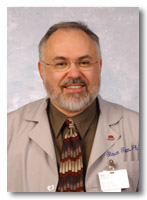Depression is a common illness and people suffering from depression need support and treatment
World Mental Health Day raises public awareness about mental health issues. The day promotes open discussion of mental disorders, and investments in prevention, promotion and treatment services. This year the theme for the day is “Depression: A Global Crisis”.
Depression affects more than 350 million people of all ages, in all communities, and is a significant contributor to the global burden of disease. Although there are known effective treatments for depression, access to treatment is a problem in most countries and in some countries fewer than 10% of those who need it receive such treatment.
Depression is a significant contributor to the global burden of disease and affects people in all communities across the world. Today, depression is estimated to affect 350 million people. The World Mental Health Survey conducted in 17 countries found that on average about 1 in 20 people reported having an episode of depression in the previous year. Depressive disorders often start at a young age; they reduce people’s functioning and often are recurring. For these reasons, depression is the leading cause of disability worldwide in terms of total years lost due to disability. The demand for curbing depression and
other mental health conditions is on the rise globally. A recent World Health Assembly called on the World Health Organization and its member states to take action in this direction (WHO, 2012).
What is depression?
 Depression is a common mental disorder that presents with depressed mood, loss of interest or pleasure, decreased energy, feelings of guilt or low self-worth, disturbed sleep or appetite, and poor concentration. Moreover, depression often comes with symptoms of anxiety. These problems can become chronic or recurrent and lead to substantial impairments in an individual’s ability to take care of his or her everyday responsibilities.
Depression is a common mental disorder that presents with depressed mood, loss of interest or pleasure, decreased energy, feelings of guilt or low self-worth, disturbed sleep or appetite, and poor concentration. Moreover, depression often comes with symptoms of anxiety. These problems can become chronic or recurrent and lead to substantial impairments in an individual’s ability to take care of his or her everyday responsibilities.
At its worst, depression can lead to suicide. Almost 1 million lives are lost yearly due to suicide, which translates to 3000 suicide deaths every day. For every person who completes a suicide, 20 or more may attempt to end his or her life (WHO, 2012).
There are multiple variations of depression that a person can suffer from, with the most general distinction being depression in people who have or do not have a history of manic episodes.
• Depressive episode involves symptoms such as depressed mood, loss of interest and enjoyment, and increased fatigability. Depending on the number and severity of symptoms, a depressive episode can be categorized as mild, moderate, or severe. An individual with a mild depressive episode will have some difficulty in continuing with ordinary work and social activities, but will probably not cease to function completely. During a severe depressive episode, on the other hand, it is very unlikely that the sufferer will be able to continue with social, work, or domestic activities, except to a very limited extent.
• Bipolar affective disorder typically consists of both manic and depressive episodes separated by periods of normal mood. Manic episodes involve elevated mood and increased energy, resulting in over-activity, pressure of speech and decreased need for sleep. While depression is the leading cause of disability for both males and females, the burden of depression is 50% higher for females than males (WHO, 2008). In fact, depression is the leading cause of disease burden for women in both high-income and low- and middle-income countries (WHO, 2008).
Research in developing countries suggests that maternal depression may be a risk factor for poor growth in young children (Rahman et al, 2008). This risk factor could mean that maternal mental health in low-income countries may have a substantial influence on growth during childhood, with the effects of depression affecting not only this generation but also the next.
Managing depression
Depression is a disorder that can be reliably diagnosed and treated in primary care. As outlined in the WHO mhGAP Intervention Guide, preferable treatment options consist of basic psychosocial support combined with antidepressant medication or psychotherapy, such as cognitive behavior therapy, interpersonal psychotherapy or problem-solving treatment. Antidepressant medications and brief, structured forms of psychotherapy are effective. Antidepressants can be a very effective form of treatment for moderate-severe depression but are not the first line of treatment for cases of mild or sub-threshold depression. As an adjunct to care by specialists or in primary health care, self-help is an important approach to help people with depression. Innovative approaches involving self-help books or internet-based self-help programs have been shown to help reduce or treat depression in numerous studies in Western countries (Andrews et al, 2011).
Depression is a mental disorder that is pervasive in the world and affects us all. Unlike many largescale international problems, a solution for depression is at hand. Efficacious and cost-effective treatments are available to improve the health and the lives of the millions of people around the world suffering from depression. On an individual, community, and national level, it is time to educate ourselves about depression and support those who are suffering from this mental disorder.
 Steven M. Tovian, PhD, ABPP, is an assistant professor of psychiatry and behavioral sciences at the Feinberg School of Medicine at Northwestern University in Chicago. He is board certified in clinical health and clinical psychology and is in independent practice. He is the former chief psychologist and director of health psychology at the NorthShore University Healthcare System Medical Group. His work focuses on integrating health care – including mental health treatment in medical settings to improve overall health. To mark World Mental Health Day (Oct. 9), the American Psychological Association spoke with Dr. Tovian about the benefits of including psychologists in primary care and other medical settings and how this integration can lower costs for consumers and insurance companies.
Steven M. Tovian, PhD, ABPP, is an assistant professor of psychiatry and behavioral sciences at the Feinberg School of Medicine at Northwestern University in Chicago. He is board certified in clinical health and clinical psychology and is in independent practice. He is the former chief psychologist and director of health psychology at the NorthShore University Healthcare System Medical Group. His work focuses on integrating health care – including mental health treatment in medical settings to improve overall health. To mark World Mental Health Day (Oct. 9), the American Psychological Association spoke with Dr. Tovian about the benefits of including psychologists in primary care and other medical settings and how this integration can lower costs for consumers and insurance companies.